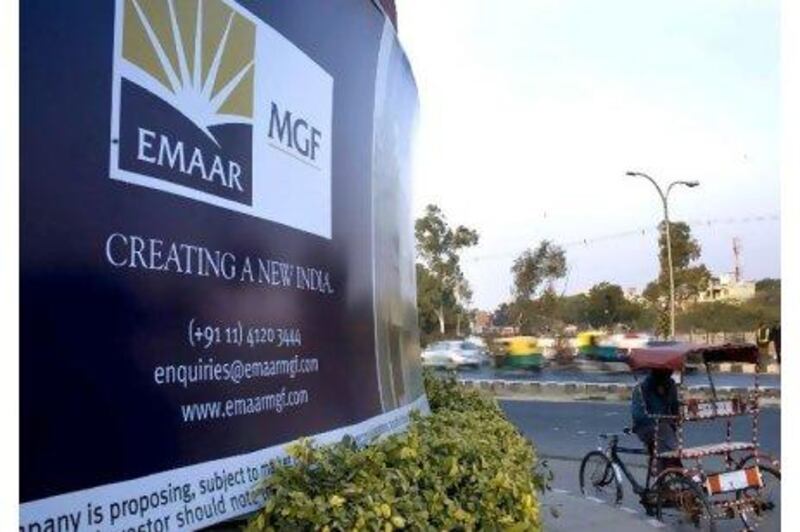Emaar Properties, the largest developer in the Middle East, is facing major challenges to its balance sheet because of problems with an Indian joint venture and the heavily indebted mortgage company Amlak Finance, an analyst says.
Majed Azzam, of Alembic HC Securities, lowered his rating on Emaar to "neutral" with a "bleak outlook" yesterday.
The decision followed Emaar's discussion last week over potentially converting some of Amlak's debt into equity. Converting Dh800 million (US$217.8m) would increase Emaar's stake in Amlak to 66 per cent from 45 per cent. Such a move would most likely require Emaar to consolidate Amlak's obligations on to its own balance sheet. Because of Amlak's considerable liabilities, Emaar's total debt would rise to Dh17 billion from Dh6.7bn, Mr Azzam said.
Emaar played down the situation in a statement on Thursday, saying an earlier option to convert Dh230m of debt into equity had been put on hold as "other better and viable options have been identified, which are now being considered and discussed".
"The management and the board of Emaar will ensure that interests of its shareholders and stakeholders are considered in acceptance of any option as discussed by the committee," Emaar said.
Mr Azzam said the deliberations revealed the risks to Emaar arising from Amlak's debt.
While Emaar has been recognised as the most profitable and balanced property developer listed in the UAE, analysts have pointed to the size of its stake in Amlak as a potential problem.
Amlak has refused to revalue almost Dh4bn of property investment and advanced payments on unfinished developments, although prices have fallen by 50 per cent in some places in Dubai. A 50 per cent devaluation would wipe out Dh2.1bn of shareholder equity in the company and lead Emaar to report significant impairments.
Amlak and the lender Tamweel were the biggest Islamic home finance companies during the property boom, but they were both badly affected by the global credit crisis because they depended on loans from foreign banks to issue new mortgages. When those banks stopped issuing loans, Amlak and Tamweel began having trouble meeting their own obligations. Eventually, trading in Amlak and Tamweel shares was suspended, and it was announced that discussions had begun with the aim of merging the lenders.
The next move did not occur until two years later. Tamweel was partially absorbed into Dubai Islamic Bank this year and is expected to resume issuing mortgages.
No plan has been announced for Amlak. Mr Azzam estimated Amlak would require about Dh4.6bn of recapitalisation.
The other drag on Emaar is MGF, the Indian joint venture that was supposed to have an initial public offering (IPO) this year. Now that appears "unlikely to go through in the near term", Mr Azzam said. Emaar has lent the venture Dh1.3bn, which it had expected to be repaid from the proceeds of the IPO.
A provision of the financing allows Emaar to convert that debt into equity, which could also lead to MGF being consolidated on to Emaar's balance sheet.






